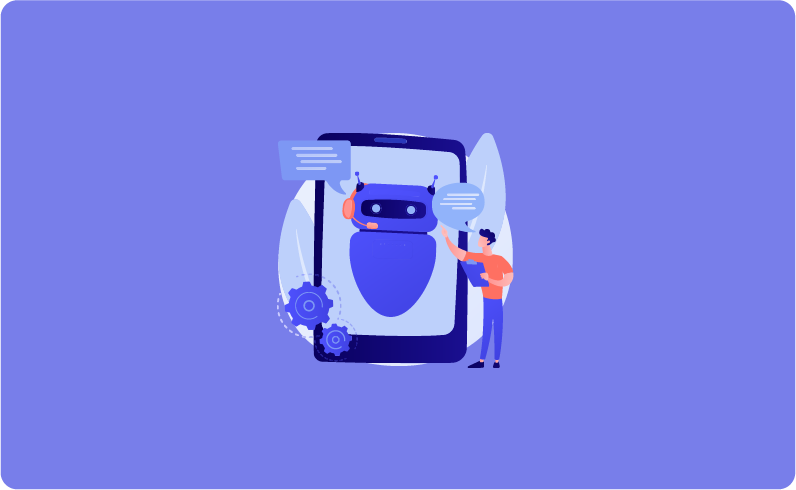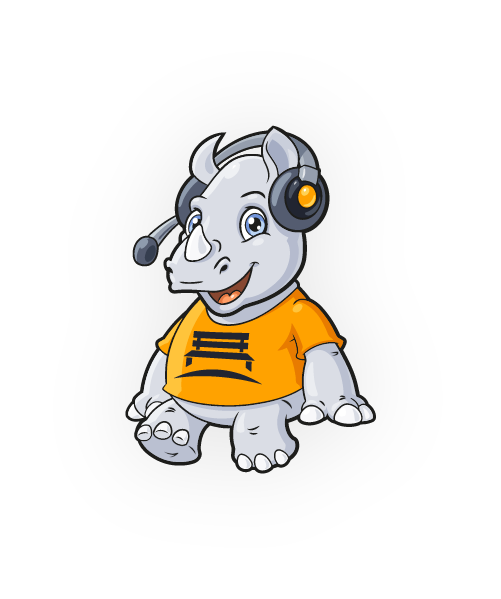In today’s fast-paced digital landscape, customer support stands as a critical pillar of B2B enterprise success. As you strive to optimize your customer support strategies, AI chatbots, particularly those powered by technologies like ChatGPT, are becoming increasingly integral. In this exploration, we delve into how leveraging ChatGPT can revolutionize chatbot efficiency, providing insights into integrating these AI tools effectively within customer support systems.

Understanding the ChatGPT Advantage in Customer Support
ChatGPT has transformed how chatbots interact and solve customer queries. Its natural language processing capabilities allow it to understand, respond, and learn from interactions, offering a more dynamic and personalized customer support experience.
It’s core strength lies in its sophisticated natural language processing (NLP) abilities. Unlike traditional chatbots that rely on predefined scripts and responses, ChatGPT can understand and generate human-like text, allowing it to engage in conversations that feel more natural and less robotic. This capability enables it to handle a broader range of customer inquiries with more nuanced and contextually relevant responses.
Also, ChatGPT’s learning algorithm allows it to adapt to your specific customer preferences and speech patterns over time. This means that the more your customer interacts with the bot, the more tailored the responses become. This personalized approach can significantly enhance your customers’ experiences, making interactions more relevant and efficient. But there are both benefits and challenges related to it. Lets look into both:
Benefits of ChatGPT in Customer Support
Real-time Response
ChatGPT’s ability to process and respond to inquiries instantly is a game-changer in customer support. This rapid response time is crucial in today’s fast-paced world where customers expect immediate answers. By providing instant responses, ChatGPT can significantly improve customer satisfaction and engagement.
Continuous Learning and Adaptation
One of the most significant advantages of ChatGPT over traditional chatbots is its ability to learn and adapt from each interaction. This continuous learning process not only improves its accuracy and relevance over time but also allows it to handle a more extensive range of queries more effectively. This adaptability means that the chatbot becomes more intelligent and efficient as it interacts with more customers.
24/7 Availability
ChatGPT’s round-the-clock availability ensures that customer support is always accessible, regardless of time zones or holidays. This constant availability is particularly beneficial for global businesses that cater to an international customer base.
With that said, there are some challenges to consider:
Integration Complexity
Integrating ChatGPT into Older customer support systems can be challenging, especially for businesses with legacy systems or those lacking in technical resources. The integration process requires a seamless blend of the chatbot into the current workflow, ensuring that it works harmoniously with existing customer relationship management (CRM) systems and databases. To avoid integration issues, you want to move to much more modern and seamless Support platform.
Nuance and Industry-Specific Queries
While ChatGPT is advanced in understanding and generating human-like text, it may still struggle with highly nuanced or industry-specific queries. These types of queries often require specialized knowledge or a deep understanding of a particular field, something that a general AI model might not always grasp completely. However if you’re using a new Support Platform that can effectively respond to these nuances, you will have much more seamless queries.
Dependency and Over-reliance
There’s a risk of becoming too dependent on AI for customer interactions. It’s crucial to find a balance between automated and human interactions, ensuring that customers still feel a personal connection with the brand. Building a great support team and giving them all the tools they need will give you much more balanced B2B Support and Success environments.
4 Actionable Strategies for Maximizing ChatGPT Efficiency
To effectively integrate ChatGPT into your B2B enterprise support system, consider the 5 latest and actionable strategies:
Customized Training for Industry-Specific Needs:
This involves feeding ChatGPT with a vast array of data and scenarios specific to a particular industry. It’s not just about the jargon; it’s about understanding the nuances and contexts of industry-specific interactions. You can begin by incorporating simulated dialogues and customer service scenarios that are typical in your industry to refine ChatGPT’s responses. If you regularly update the training material with new data, trends, and customer feedback to keep the AI model current and relevant, it will enhance the bot’s understanding of specialized jargon and customer pain points. For example, a healthcare technology company might train ChatGPT on medical terminology and patient privacy concerns, which will provide more accurate and relevant responses, reducing misunderstandings. And most certainly, when customers receive responses that demonstrate an understanding of their specific industry context, it builds trust and credibility.
Balancing AI and Human Interactions:
It’s vital that you’re using a new enough support platform that can work seamlessly and in unison with ChatGPT and establish protocols to handover to human agents for complex queries. It’s a matter of having a system in place that has implemented AI-driven triggers in place that identify when a conversation should be escalated to a human agent, based on factors like complexity, customer sentiment, or specific keywords that you determine. This ensures nuanced or sensitive issues are handled with a human touch while still taking advantage of all that AI bots have to offer. For example, you can implement a trigger where ChatGPT suggests a human takeover when customer frustration is detected. This way, customers feel heard and understood by a human agent who can provide the empathy and detailed attention required. Additionally, this balance ensures that human agents are used where they are most needed, optimizing the workforce.
Localized Language Support:
A great way to start is by training ChatGPT in multiple languages to support diverse customer bases. But even beyond language, you can train it on cultural nuances and colloquialisms to ensure culturally sensitive and appropriate responses. You can even go so far as to customize ChatGPT’s responses not just for language and cultural nuances, but also for regional differences in products, services, and customer expectations. This is helpful on so many levels. It expands the reach and inclusivity of your customer support. For example, a multinational corporation could deploy ChatGPT in different languages based on regional customer bases. And this level of multi-language support allows businesses to scale globally while maintaining a local, personalized touch. This can fundamentally increase the accessibility of your support to a broader audience, making your services more inclusive.
Integrating with CRM Systems:
I cant stress this enough; if you’re interest is in taking advantage of all AI has to offer, it’s imperative that you have the most up to date and modern Support Platform that can fully implement AI along with any other CRM you’re using. In doing so, you can seamlessly sync ChatGPT with CRM systems like Salesforce for contextualized support. This will enable you to pull real-time data from CRM systems to provide up-to-date responses based on customer history. And you can easily develop algorithms that use CRM data to personalize interactions, such as recommending products or services based on past purchases or browsing history. For example, ChatGPT can use past purchase data from CRM to provide tailored product suggestions. This will give you a much more comprehensive and personalized view of your customer; improving both customer satisfaction and loyalty. And of course, a fully integrated CRM with Support Platform AND AI, well that’s clearly a game changer in every way.
The Supportbench Revolution
Incorporating these strategies into your customer support framework is where Supportbench stands out, seamlessly integrating with ChatGPT to offer revolutionary benefits. Concerning autonomy and customization, Supportbench’s intuitive interface allows easy integration and customization of ChatGPT, reducing the dependency on IT teams. And Supportbench has full AI-driven analytics that offer deep insights into customer sentiments and behavior. Even as you enterprise grows, Supportbench with ChatGPT scales accordingly, maintaining efficiency and consistency in customer support. And by leveraging ChatGPT’s capabilities, Supportbench ensures a more engaging and satisfactory customer interaction. From dynamic SLAs to customer health scoring, Supportbench utilizes ChatGPT’s AI power to enhance every aspect of customer support.
According to Gartner, by 2025, customer service organizations that embed AI in their multichannel customer engagement platform will elevate operational efficiency by 25% (Gartner, 2023). This statistic underscores the transformative impact of AI in customer support.
Furthermore, Salesforce’s CEO, Marc Benioff, highlights the importance of AI in customer support, stating, “AI is a fundamental shift in our industry. It’s reshaping how businesses interact with their customers.” This perspective aligns with Supportbench’s mission to harness the power of AI for superior customer support.
Conclusion
Incorporating ChatGPT with Supportbench offers a forward-thinking approach to customer support in B2B enterprises. By focusing on these actionable strategies and leveraging the latest AI technologies, businesses can not only enhance their customer support efficiency but also position themselves as innovative leaders in their respective industries. With Supportbench and ChatGPT, the future of customer support is not just about solving problems – it’s about creating seamless, engaging, and deeply personalized customer experiences.











